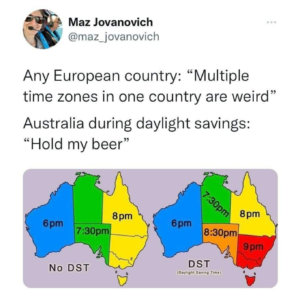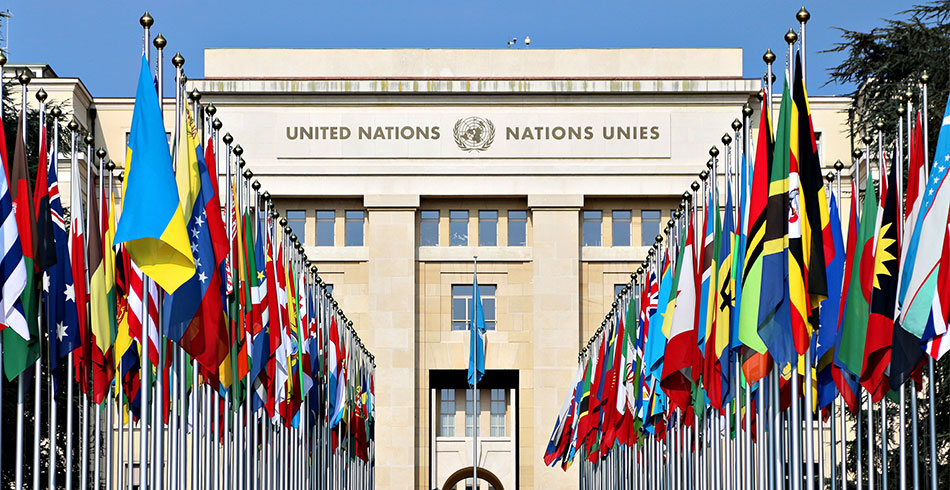Who’s Who in the Zoo
Unquestionably, Prime Minister Albanese is the most influential person in Australia as reinforced by the AFR Australia’s 10 most powerful people in 2022 list, published on 30 September 2022. But with his election success, he has also ushered in a whole new apparatus around him, both within government and externally to parliamentary affairs.
The power politicians hold is exceptionally overt; typically the face of changing legislation and reform, the key players in Parliament House are very recognisable with strong media presences.
However, covert power players are the silent influencers of government, media and reform. With the election came new faces within Parliament House. With the election came new opportunities for covert players to gain or utilise long-standing connections.
So who are some of Australia’s leading overt and covert players, and how are they influencing the agenda through job creation, business, activism, media, and industry reforms? The Nexus team, putting together a series of observations and comments each week around the First 100 Days of the new political dynamic.
Government
After securing Labor’s first majority victory in 15 years, Prime Minister Albanese has made a strong start establishing his power. Prime Minister Albanese hit the ground running, adopting a ’round-table’ and ‘consensus style’ approach. Early landmarks include securing climate legislation and overseeing a jobs summit that lays the foundation for changes in the historical battlefield of industrial relations.
The PM seems intent on engaging in open and widespread discourse. Already pursuing budget repair and fixing problems in aged care and childcare, as well as introducing an anti-corruption commission, and impressing Australia’s allies in a series of overseas visits, Prime Minister Albanese’s governing strategy is refreshing.
We have had a series of prime ministers in the last decade who have been either unwilling or unable to contemplate the strategy adopted by Prime Minister Albanese—putting an idea out in the public domain and letting the debate play out themselves. Former Prime Minister, Tony Abbott’s approach, stemmed from a ‘Take-it-or-Leave-it’ method while former Prime Minister Malcolm Turnbull had little capacity to swing a discussion due to his limited room for political manoeuvre with the Nationals. Prime Minister Albanese’s approach to the Voice, industrial relations changes, climate legislation and more display a tendency of the PM to grasp the advantages of letting debates play out in the public domain. This strategy is reminiscent of former Prime Minister John Howard with important reforms such as the Goods and Services Tax (GST).
Alongside the Treasurer, the Hon. Jim Chalmers – another power player on the scene – Prime Minister Albanese’s approach to success relies on maintaining open discourse in the complex interactions between the leader and the leadership environment.
Prime Minister Albanese has been praised for his strong efforts to build his links into the business world; alongside Treasurer Chalmers, the duo hold considerable respect in the business sector. The influence of these relationships will undoubtedly become more important following the October Budget and the implementation of Jobs and Skills Summit outcomes.
Senator Penny Wong, Minister for Foreign Affairs
A trailblazer for women and minorities in public life, Foreign Minister Senator Penny Wong is Labor royalty and an important voice in the Prime Minister’s cabinet. Immediately after the May 21st election, the new foreign minister joined the Prime Minister at the Quad talks in Tokyo, only the first stop in a whirlwind diplomatic round. Minister Wong has emerged as a critical voice in repairing and resetting Australia’s international relationships, specifically with our Pacific neighbours. Her efforts have also focused on strongly re-engaging with global action on climate change.
As the global arena faces geo-political tensions, rising international costs of living and tensions over topical issues of climate change, and regional security concerns, Minister Wong’s influence both domestically and growing impact regionally cannot be understated. Her focus on personal diplomacy and her open discourse messaging resonates with ASEAN countries and establishes Australia as a power player in the region.
Few major decisions seem to be settled in the government without Minister Wong’s endorsement and recognition of her role in the government’s leadership team, Senate Leader and as part of Labor’s powerful South Australian delegation. In the First 100 Days of the new parliament, Minister Wong has had a very strong influence and does not appear to be slowing down.
Teal Independents
From political novices to taking out some of Australia’s political giants, teal independents Kate Chaney MP, Sophie Scamps MP, Allegra Spender MP, Kylea Tink MP, Zoe Daniel MP and Monique Ryan MP have redrawn the lines of power in parliament in the First 100 Days.
As part of the largest crossbench in the House of Representatives, the independents have proven themselves a formidable force for the major parties to compete. As a critical pressure point for Labor, the independents’ power will push the Labor government to maintain their favour. Having wiped out the next generation of Liberal moderates, the independents continued success could well keep the Coalition out of office.
By harnessing the widespread dissatisfaction with the political ruling class, the teal independents are high profile, well-educated, truly independent and articulate. Much of the teal independent’s power resides in their influence over crucial electorates and the role they could play in the next election.
The Liberal Party will have to contend with attracting female voters back that seem to hold the key to the Teal seats. Meanwhile, the Labor Party face the ‘political movement’ the teal independents have fostered. The teals are deeply socially and politically significant. Labor must retain their favour to maintain power, and it is structurally impossible for the Liberal Party to win an election without regaining most of those lost seats.
Covert Power-Players
Whilst parliamentarians are naturally power players in their positions, many covert power players are working behind the scenes influencing business and social reform, with considerable clout within media and amongst politicians.
Tim Gartrell
As the Prime Minister’s Chief of Staff, Tim Gartrell is central to crucial decision-making at the government’s heart. In Prime Minister Albanese’s first speech to parliament more than 25 years ago, he thanked four people, including his then-campaign manager Tim Gartrell.
Mr Gartrell’s influence has been exposed through his long-standing influence on political and electoral campaigns. He served as the National Secretary of Labor and led Kevin Rudd’s successful 2007 campaign. He was instrumental in the campaign for same-sex marriage in Australia and has championed Indigenous recognition in the Constitution. Mr Gartrell’s background and experience on the Recognise campaign will prove helpful going into the Voice referendum.
Respected across the Labor party and by many Liberals inside Parliament House, he brings savvy and modern campaign thinking to the job.
Mr Gartrell has strong relationships with key individuals such as Penny Wong, Mark Butler, Katy Gallagher and across the senior leadership of the party. He can act as the bridge between the party machine and politicians and is key to the Labor government strategy.
Greg Combet
As chairman of Industry Super Australian, a veteran of Labor’s Rudd-Gillard governments, Mr Combet sits at the top of Australia’s $1 trillion industry super sector. The former ACTU boss and Climate Change Minister, Mr Combet, is close with Prime Minister Albanese and leading an election review on the successful Labor 2022 campaign.
The review is all about re-election for a second term and how to still learn the lessons of areas that Labor can improve on. Mr Combet’s appointment to lead this review indicates his hidden power and the trust he has in the Executive of Federal Labor.
Industry super funds – of which Mr Combet is the most recognisable face– are a major force in the halls of Australian capitalism and the economy. They hold considerable covert power by dictating where capital goes in the country. The influence of the collective volume of industry funds is substantial. With the Labor government intent on ensuring superannuation is safe from regulatory tinkering, Mr Combet’s respected voice will be prominent in these efforts.
Mike Cannon-Brookes
Third on the Financial Review Rich List, with wealth approaching $28 billion, the Atlassian co-founder could be content running one of Australia’s highest-profile companies. Instead, the billionaire climate-change activist launched an ambitious campaign to stop the demerger of AGL, sparking an implosion inside the company and rewriting the rules of the environmental, social and governance movement.
Mr Cannon-Brookes’ decision was the first instance of not only a corporate activist in the traditional sense but also a climate activist going after a major Australian company and major Australian fossil fuel energy producer. The result of these decisions by Mr Cannon-Brookes will undoubtedly be felt in the business sector, with boards looking at both ESG issues and shareholder activist activity far more seriously.
Active on Twitter, Mr Cannon-Brookes also works behind the scenes by talking to corporate boards and has donated to Climate 200 – a key backer for the teal independents.
With his profile and investment clout, Mr Cannon-Brookes’ power and influence aren’t going anywhere soon. His public stance and corporate sway are influencing the thinking about ESG and the approach of established companies. Whilst the government pushes climate policy reform in the House, Mr Cannon-Brookes has altered how corporate activism is viewed in the First 100 Days of the new government.
A Most Educated Parliament
This week we take a look at how educated this iteration of our new federal parliament is.
As reported in the early days of the election of the Labor government, the current cabinet holds more qualifications than any other cabinet formed in Australian history. Believe it or not, Prime Minister Anthony Albanese is the cabinet member who undertook the smallest amount of education, holding a Bachelor of Economics from the University of Sydney – a degree not to be sniffed at. On average, the Ministry holds two degrees each, most likely a Law Degree from the group of eight universities.
Meanwhile, across the parliament, 360 members and senators of 397 hold a qualification of some type. Let’s break that down
- Bachelor: 207 (Labor 105, Liberal 67, National 15, Greens 10, Independent 7)
- Doctorate: 15 (Labor 10, Liberal 0, National 1, Greens 3, Independent 1)
- Masters: 63 (Labor 26, Liberal 28, National 0, Greens 4, Independent 4)
- Graduate Diploma: 22 (Labor 6, Liberal 11, National 1, Greens 2, Independent 2)
- Diploma: 26 (Labor 14, Liberal 7, National 3, Green 1, Independent 2)
- Certificate: 13 (Labor 4, Liberal 9, National 1, Green 1, Independent 0)
- Graduate Certificate: 11 (labor 4, Liberal 5, National 1, Green 1, Independent 0)
- Advanced Diploma: 1 (Independent)
- Other (Fellow, Australian Institute of Company Directors): 1 (Independent)
Interestingly, the most popular type of qualification resides in the Humanities, Social Sciences and Law faculties, with 221 qualifications. Management and Commerce came in second with 97 qualifications, and Education a distant third with 18 degrees.
Fun fact: No Labor, National, Green or Independent member or senator holds an Agriculture or environmental qualification. Only three Liberal members have a qualification in those fields.
Tweet of the week:

Latest posts by Nexus APAC (see all)
- United Kingdom General Election 2024: An Overview - April 15, 2024
- Australian Voters Go to the Polls - February 26, 2024
- Secretaries of Federal Departments – An Overview - February 1, 2024



